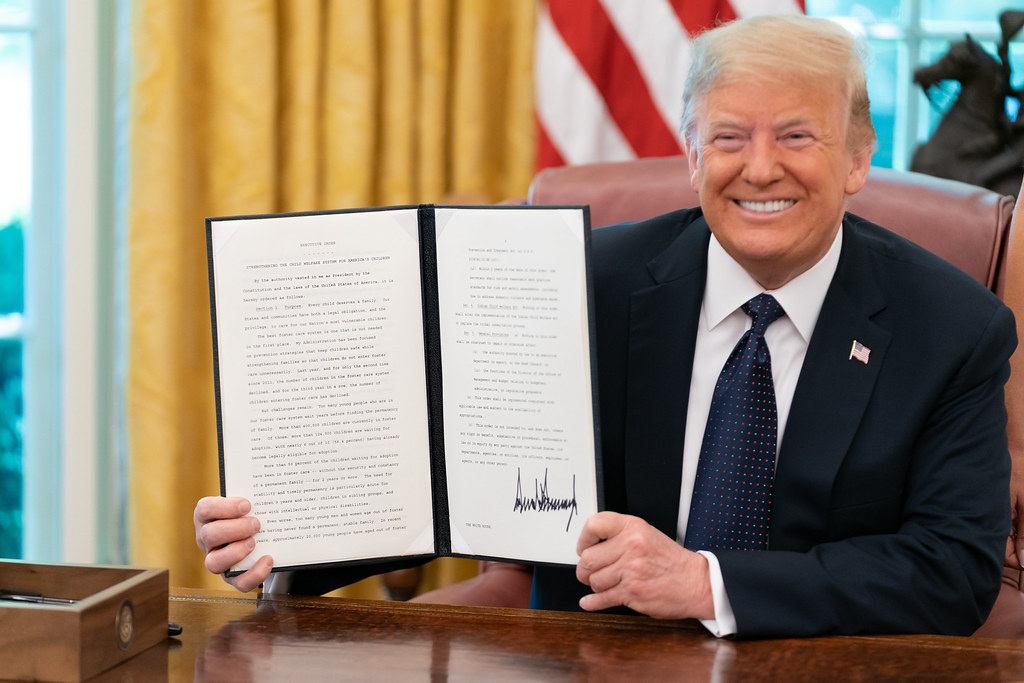Throughout his first days in the second term, President Donald Trump has signed into action a bevy of highly debated and alarming executive orders across sectors. These actions, moving to reshape federal policies on diversity, gender identity, international relations, and immigration, define a clear movement in the new course that the administration will take.
Among the first and most high-impact orders was to dismantle all diversity, equity, and inclusion programs across the federal government. With immediate effect, federal employees who worked in the DEI units were put on paid leave as their respective departments initiated the process of closing those programs. Agencies have been directed to report the closure of their DEI offices, personnel changes, and the termination of related contracts by midday on Thursday. In addition, the order calls for the elimination of “environmental justice” offices and bars DEI-based hiring within the Federal Aviation Administration. President Trump justified these moves by saying, “We are ending woke politics in federal hiring and bringing back common sense and meritocracy.”
A decision that has caused an uproar in LGBTQ+ advocacy groups, President Trump signed an executive order called Defending Women From Gender Ideology Extremism And Restoring Biological Truth To The Federal Government. It establishes strict binary definitions of gender, determined at birth, recognizing only male and female, and mandates their use across all federal agencies. It rescinds several orders issued by the previous administration that recognized and safeguarded gender identities as diverse. Defending the decision, Trump said, “We are protecting women’s rights, sports, and spaces from being erased by radical gender ideology.” Critics claim the order disregards the identities of transgender and non-binary people, leaving them increasingly marginalized.

Regarding immigration, President Trump has brought it to the U.S.-Mexico border another 1,000 active-duty troops beyond the 2,200 troops already there to achieve “full operational control of the southern border.” The executive order asks the Pentagon within 90 days to decide if more drastic steps, such as invoking the Insurrection Act of 1807, are warranted. The Insurrection Act would deploy forces to enforce laws in domestic premises, a provision that, over the years, has raised concerns about potential overreach. Explaining this measure, Trump said, “America’s borders must be defended. Without borders, we have no country.” There have been an abundance of protests against the President’s executive order all over the country.
International health policy has also taken a sharp turn. President Trump signed an executive order withdrawing the U.S. from the World Health Organization (WHO). This decision, Trump argued, was long overdue, stating, “The WHO has failed in its basic duty and must be held accountable. It is time for the U.S. to chart its own path in global health.” While he signed it, President Trump noted the extreme imbalance of aid the US gives to the WHO compared to other countries. He made a point that in 2024, the U.S. with a population of 340 million gave over 500 million dollars in aid, while China with a population of 1.4 billion only gave the WHO 39 million dollars in aidHealth experts warn that leaving the WHO could hinder the nation’s ability to respond to global health crises and weaken international cooperation.
Revisiting a contentious issue from his first term, President Trump signed Executive Order 14148, titled Putting America First In International Environmental Agreements, directing the immediate withdrawal of the United States from the Paris Agreement and other international climate commitments. Trump defended the move, stating, “The Paris Agreement hurts American workers, raises energy prices, and unfairly targets the United States. We are rejecting bad deals and putting America first.” Environmental groups condemned the decision, arguing it undermines global efforts to combat climate change.
The recent executive orders issued by President Trump represent an audacious and contentious redirection of federal policies. Whereas many supporters hailed these actions as fulfilling campaign promises and reiterating national priorities, critics raised concerns about the erosion of civil rights, environmental protections, and international cooperation. As these policies are rolled out, they are likely to face legal challenges and spur continued public debate, reflecting the deeply polarized landscape of contemporary American politics.

